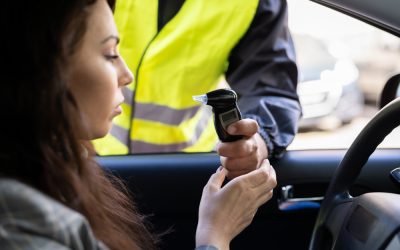If someone has committed a felony, and after their commission of the act you help to cover up that crime or help the person avoid arrest or conviction in any way, you can be charged as “an accessory to such felony” under CA Penal Code 32. This charge is more commonly known as “accessory after the fact” and can lead to felony charges. Felony charges bring serious consequences and require a serious defense.
Contact a skilled Los Angeles DUI attorney immediately if you have been charged as an accessory after the fact. Your lawyer will protect your interests and work to have your charges reduced or entirely dismissed.
Proving “Accessory After the Fact” Charges
To prove you are truly guilty of being an accessory after the fact, prosecutors must first prove the person you alleged helped had committed a felony act or was facing felony charges.
Then, the prosecution must prove you knew the person had committed, was facing charges for, or had been convicted of that felony. Next, they have to prove you hid or otherwise helped the person who had committed the felony, and that your goal was to help the person avoid an arrest, trial, conviction, or subsequent penalties.
What It Means to Help or Aid a Felon After the Fact
The help you offer the person who committed the criminal act may not be criminal behavior on its own. You may have even offered it out of love or with the best of intentions. However, offering that aid with the intent to cover the crime or help the offender avoid punishment makes your actions criminal.
Examples of actions meeting “accessory after the fact” descriptions include, but are not limited to:
- Helping the criminal flee the scene of the crime
- Offering the criminal a place to hide, or helping them find a hideout
- Destroying evidence of the crime
- Providing the criminal with a false alibi
- Providing financial support to help the criminal as they flee or hide from authorities
Refusing to testify at a trial where a defendant faces criminal charges does not warrant accessory after the fact charges.
Accessory After the Fact Violations Are Wobbler Offenses
Violations of PC §32 fall into the “wobbler” category in California and can be charged as either felonies or misdemeanors as per the prosecution’s discretion. Prosecutors will consider several factors when determining how to charge you. Along with your criminal history, they will evaluate the specific circumstances of the situation, such as:
- Whether you were at the actual crime scene
- How close you were to the crime scene
- Your relationship to the person who committed the crime
- How much you knew about the person’s criminal actions
Penalties for PC 32 Convictions
Whether you are convicted of misdemeanor or felony charges, the consequences are significant. Misdemeanor convictions can bring a sentence of up to one year in county jail and/or a fine of up to $5000. Felony convictions can bring sentences of up to three years in jail or state prison, and/or a fine of up to $5000.
Misdemeanor charges can potentially be expunged from your record if you meet all conditions of your punishment. Felony charges for this statute, however, cannot be expunged.
Having a felony conviction on your record can negatively affect your future employment opportunities, cause you to lose professional licenses, and suspend some of your civil rights. For example, while serving time for a felony, you cannot vote. You are also banned from ever owning a firearm in California.
Defending Against Accessory After the Fact Charges
For the best outcome, securing legal representation from a defense lawyer experienced in PC 32 violation cases is essential. A skilled lawyer understands the seriousness of the charges and subsequent penalties and will argue to have your charges reduced or even dismissed.
You Were Forced
You should not be found guilty if you were threatened or intimidated into helping a criminal hide evidence or escape the scene. Your lawyer will provide evidence showing you were forced to act to protect yourself or others from harm.
You did Not Know
To be convicted, prosecutors must prove you knew the person you allegedly helped had committed a crime.
For example, imagine you are driving somewhere, and a friend flags you over and asks for a ride. Unbeknownst to you, the friend has just robbed a store. Your lack of awareness of that friend’s act should protect you from a guilty conviction.
You Were Just a Bystander
Perhaps you were present at a crime scene but did not participate or help the perpetrators. Your lawyer will argue your presence alone is not enough to warrant charges or convictions. You were simply a bystander, not an accessory.
Accessory “After,” vs. “Aiding and Abetting,” and “Conspiracy”
Under PC §31, it is a crime to help, aid, or abet, someone who commits a crime. To be charged and convicted of aiding and abetting, the prosecution must prove you participated in committing the criminal act.
Conspiracy charges, under PC 182, apply if you agree and plan to commit a crime with another person, and one of you (it does not have to be you) takes steps to complete that crime.
Charges for accessory after the fact apply when you did not agree to commit a crime, did not help plan a crime and did not take part in the crime. Rather, you helped someone conceal a crime, go into hiding, or otherwise escape legal consequences.
You Have the Right to a Strong Defense
If you are convicted of a California Penal Code 32 violation, you can be looking at years in jail, hefty fines, and permanent barriers to educational and employment opportunities. With such high stakes, you need a lawyer with the knowledge, commitment, and experience to investigate your case, argue for your defense, and protect your rights. A Los Angeles DUI attorney will provide the guidance and protection you need.
Reach out for representation today.





